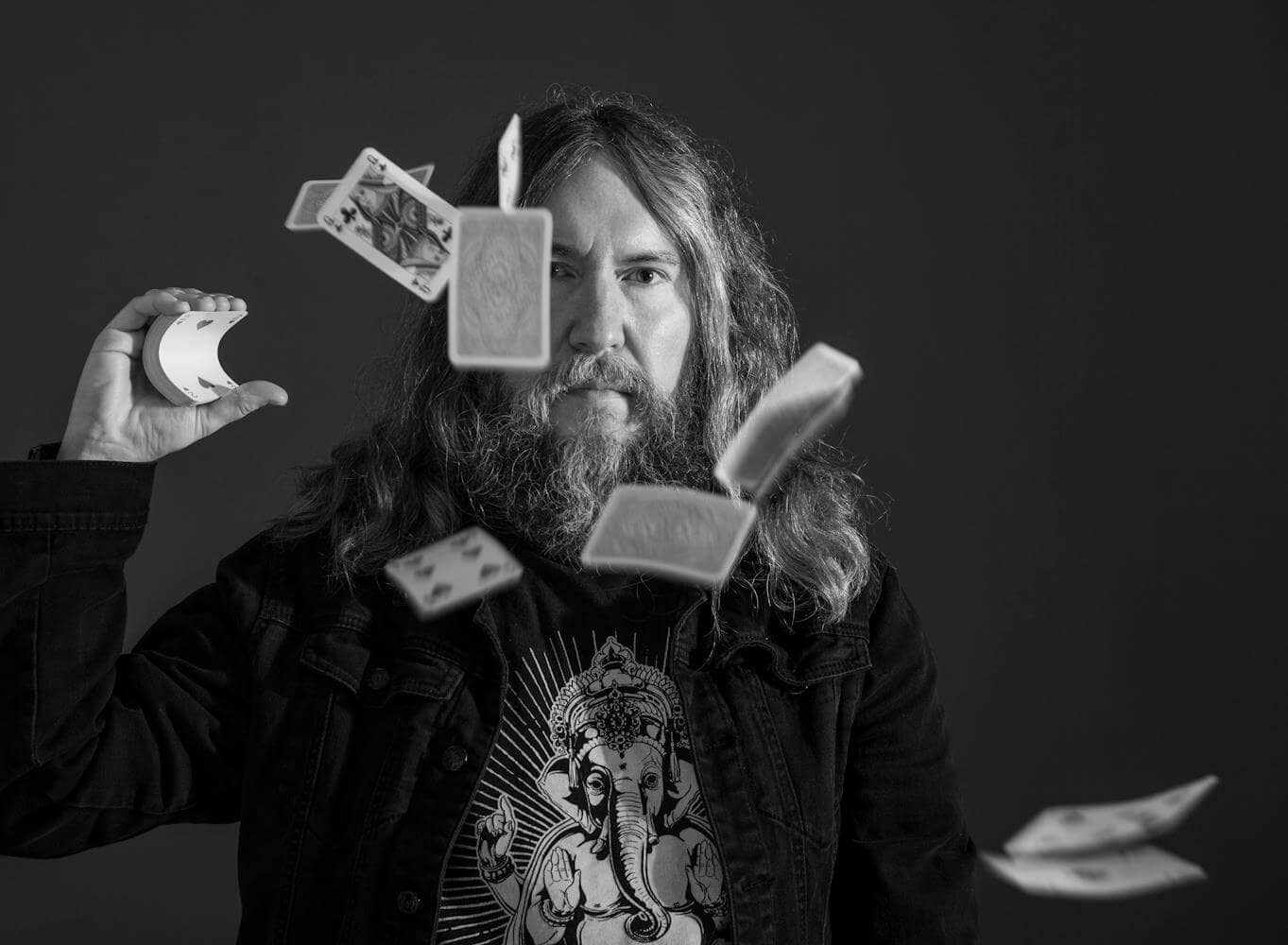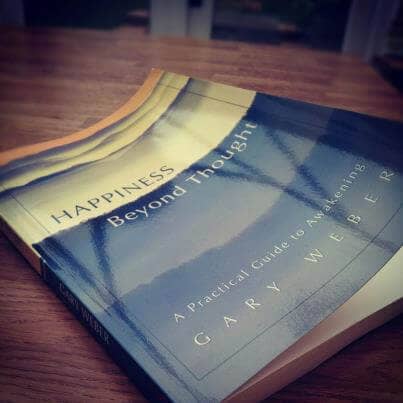Podcast: Download
Subscribe: Apple Podcasts | RSS

Great!
You’re in the right spot.
But here’s what most people won’t tell you…
Using memory techniques properly requires practice.
It’s the catch that stops many people cold in their tracks:
Because people also know adding another skill will require…
Time.
Worse, a lot of people overthink the beginning process. In fact…
Getting started with memory improvement kind of freaks them out!
But what if there was a way for memory techniques to save you time instead of costing you time?
A way that lets you cut like a laser through even the toughest subjects and most challenging languages?
And a way that creates more energy instead of making you feel burned out all the time?
In this post, I’ll share with you exactly how you can make that happen.
But first, please understand this:
My Memory Techniques For Students Started With A HUGE Dream
Let me ask you something:
When you were a child what did you want to be when you grew up?
An astronaut, firefighter, veterinarian, princess, or cowboy?
Perhaps it was something more … heroic.
Me?
Well, long before I wanted to be an author and a professor…
I wanted to be Batman.
Yes, the caped crusader and defender of Gotham himself, Batman.
Of course, I eventually grew up.
As we grow older, our ambitions change and we tend to choose professions that are more practical.
Or we select careers that will make us financially secure, which is usually not the same thing as following those childhood dreams.
But because I learned how to integrate memory techniques into my every day life through proper practice with them, I actually did follow my childhood dream and grew up to be something like a “Mnemonic Batman.”
Why The Right Memory Techniques Will Make You A Real Life Superhero
Wait a minute!
How is that possible?
After all, I’m certainly not the billionaire playboy, Bruce Wayne.
But that doesn’t matter.
You see, the thing that makes Batman, Batman is not superhuman strength, intelligence, or any number the of supernatural powers possessed by our favorite comic book heroes.
It’s practice.
But practice with what?
Good question. And the answer is simple:
Advanced Memory Technique Practice
Once you’ve mastered those mnemonic systems, you can go on to other things.
A major one is learning how to memorize a speech. I gave this TEDx Talk from memory to give you an example:
You can also practice applying the mnemonic techniques you learn to:
- Vedic math
- Language learning
- Special topics in music (like the bass clef, guitar strings or committing entire songs to memory)
- Scripture
- Stories
Speaking of stories, the question is…
If those are all the techniques you need to practice…
Why am I going on about Batman?
Well, for anyone who knows the full Batman story, anyone who practices the right things can wear the Batman mask for a few simple reasons:
1) Batman is a trained scientist who practices science
2) Batman creates the tools he needs to get the job done (and practices creating them)
3) Batman trains with the tools needed to get the job done (including training his body, which is also a key part of memory improvement along with eating foods that improve memory)
Other than that, Batman is just a normal guy with a utility belt loaded with knowledge and tools earned through practice.
The Most Important Memory Improvement Tool Of All
I’ve equipped my tool belt over the years with many memory techniques.
But at the end the day, the most important tool of all is discipline.
Is discipline itself a memory technique?
Yes. When you train yourself to remember to practice, your ability to implement becomes stronger.
Your ability to experiment (like a Batman-level scientist) with new memory techniques also becomes stronger. You learn to have courage through disciplined practice.
And you understand that all memory training you undertake is worth the time you risk because memory practice causes you to stretch and grow.
The best part is that you already possess two things:
1) A vast ability to develop the discipline of practice with memory techniques
2) A massive depository of mental imagery in your episodic memory to practice with
But at this point, you may be wondering…
What Are The Right Memory Techniques For Studying Tough Topics And Complex Languages?
The answer is…
It depends.
We’ll talk more about the options, in this post, but for now, here’s a roundup of the best:
The Memory Palace is foundational across the board. You need to know this technique because every other technique can be used inside of a Memory Palace.
Some people call this technique the Method of Loci, but I think that term is flawed. To learn more about why, check this out:
Let me help you avoid a big mistake:
A lot of people try to make things work with just one Memory Palace.
That can be helpful.
But in reality, Memory Palaces work best in a network.
That’s what allows you to expand your spatial memory and get the most use from your Magnetic Bridging Figures.
You may also need the Major System (a.k.a the Major Method I mentioned above).
But you might not need some of the additional mnemonic strategies right now. It’s always fine to start with just one and add the others later.
But what you absolutely need is something called Recall Rehearsal. This process is something I teach in the MMM Masterclass. It’s what lets you load the information you memorize into long term memory.
But These Three Major Memory Techniques Sound Like A Lot Of Effort!
Yes, and no.
Please don’t let yourself get overwhelmed.
If anything, you should consider overwhelming yourself on purpose, if only for a short while.
How?
Dive in and practice what my friend and fellow memory expert Jonathan Levi calls “brute force learning.”
That means instead of trying to cover every last detail, you rush in and get the broadest possible overview as quickly as possible.
Only after that has been accomplished, do you zero in on the fine details.
And only then can you discover what memory techniques are really all about without getting caught up in the Sherlock Holmes mythology that traps many students who wish they could use memory techniques as well as they want.
The point is:
You need to bring a sense of adventure and a sense of play.
That will make learning and practicing memory techniques easier and more fun.
To help you discover this sense of fun and adventure…
Think Back … (A Quick Memory and Brain Exercise)
Think back again to your childhood. Whether you begrudgingly took piano lessons, played Little League baseball, or had a starring role in the school play, the one key to your success was practice.
With practice you could play scales from memory, throw a faster pitch, or recite your lines flawlessly (while your peers still had their noses in their scripts).
If this idea worked for us as children, why have we abandoned it as adults? Its importance is clearly evident, especially in the world of memory improvement.
Take the professional musician. Practice is something that is a part of their everyday lives, especially “dedicated practice.”
Musicians learn and repeatedly perform physical actions. The play the notes on written sheet music or their own composition with “specific sounds and visual patterns (musical notation) while receiving continuous multi-sensory feedback.”
It is believed this “association learning” or training of the neural network can lead to brain plasticity, actually changing the structure of the brain,
In short, with practice, the brain’s ability to modify itself (i.e. rewire its connections) over time is strengthened.
You may ask “Why is that important? Why would my brain need to change if it is the control center of my body? Isn’t it kind of static?”
Your Brain Has An Extraordinary Knack For Learning Memory Techniques
It’s just practicing using them where most people fail.
Now, you might not feel that they are easy in the beginning, but your brain is actually perfectly suited to learn memory improvement tips and tricks.
And the only reason why people struggle in the beginning is because they haven’t used their memory muscles in quite this way before.
But once they get started, a very exciting fact kicks in that isn’t just for musicians:
Every Brain Has The Ability To Modify Itself Through Practice!
Not only during childhood (when the majority of formal learning takes place), but especially during adulthood, perhaps even most crucially in one’s senior years.
You know what that means, right?
It means you’re never too old to get started!
And your brain adapts so readily to training. Just look at how many Psalms Mike McKinley has been able to memorize.
Think about it:
With everything from recovery from injury, alleviating chronic pain, to enabling easier use of prosthetic devices.
Your brain can even adapt to artificial hearing devices. Neuroplasticity is not to be taken for granted!
All your brain needs is care, cultivation, and training through extended practice.
Using Memory Techniques Is Creative Repetition, Not Rote Learning
When training your memory, practice is more than just repetition.
Most repetition is boring and painful, after all, and so it’s no wonder so many of us easily dismissed it in our everyday lives.
Yet, in the beginning, practicing by memorizing cards or setting up your first P.A.O. with something like Florian Dellé’s Major System may make you think:
“But isn’t this practice with the techniques just doing something over and over?”
Stop.
Thoughts like that instantly take you back to those hours behind a piano. Or reciting lines from your third grade play script until they were committed to memory when you would have rather been playing video games or splashing in a mud puddle after a good rainstorm.
But practicing with memory techniques is not like that at all, once you get used to them. Once you have focused attention skills on your side.
An Unusual Source of Inspiration For Practicing Memory Techniques For Your Studies
Right now, I’m studying a lot of Sanskrit for a large learning project about Advaita Vedanta.
In his book, Happiness Beyond Thought, author Gary Weber explores this idea of the importance of practice, serving as a practical guide to awakening.
Gary Weber might not be a memory expert, but he’s memorized a ton of Sanskrit and has some skills. Recently, I’ve been following suit by memorizing his selections from the Ribhu Gita:
Back to Happiness Beyond Thought and what it teaches us about practice:
Basically, the book is about bringing yourself to a state where you are no longer troubled by worry, concern, or thoughts that impeded your conscious state.
Even better:
You essentially escape the traps of the ego, of the self, and you experience this wonderful state of “happiness beyond thought.” I’ve certainly been having a good taste of it.
Now, “happiness is a complicated word.” I often think of eudaimonia which is ancient Greek for happiness, though it is said to be better translated by experts as meaning “flourishing.”
But then, you might be thinking … How can having a still mind be flourishing?
Especially when you’re filling it with Memory Palaces and Magnetic Imagery!
I know, I know. It does seem contradictory.
How Memory Practice Positively Changes The Structure Of Your Brain
But here’s the thing:
As we’ve just discussed, neuroplasticity shows that the brain can change.
And when you’re training to memorize information that is good for your brain, your brain cannot help but change in positive ways.
The more you practice, the more you create flow and a level of ease that can come only as a result of practice.
From this state you will develop a stillness. An inner peace.
But only if you show up and put in the work can the discipline of practice grow and fortify those neural pathways and strengthen existing connections in your brain.
Why Smart Phones Are Destroying Your Ability To Practice Memory Techniques
In this age of smartphone addiction where we essentially have a computer in our pocket, long division is a thing that seems straight out of the Stone Age.
But again, think back to when you were learning long division in elementary school.
Do you remember how frustrated you were with the first couple problems you tried? Your little pencil eraser probably got quite a workout!
But, with practice, how were those same problems by the end of the year? You could fly through them with ease, without a second thought. You developed those connections and were able to solve 936 divided by 2 almost automatically.
And if you had to learn it all over again, those rules of math are still true. You would just need to put the cell phone aside for long enough to learn how to make the calculations again either on paper or in your mind.
This is why I teach people about Digital Amnesia and the importance of “digital fasting.” If you don’t take time away from the devices to exercise your memory, you will lose the ability to use it altogether.
How To Choose Your Memory Improvement Habits Wisely
So how does one develop good practice habits to help us in memory practice? First, start small. Not to say you don’t want to “dream big,” but think about your goals. Really think about them.
You can have different kinds of goals.
You can have very big, huge, hairy, snarly, real over the top goals, where you must build a long-term path to achieve that goal, or smaller goals, for the more short term.
James Clear says in his book, Atomic Habits, “If you choose a habit that’s very small and it accumulates with a bunch of other small changes to form a larger system then you can end up with a very remarkable result, or an immensely powerful outcome.”
And so the practices that you will do need to have some focus on what it is you want to achieve
How To Make A Practice Plan For Using Memory Techniques In Your Studies
- Create a “Memory Journal.”
- Personalize your Memory Journal so that you feel more connected with it (draw on the cover, add stickers, etc.)
- Set a specific and measurable learning goal.
- Use this Memory Journal to gather together the floor plans of your Memory Palace Network.
- Use the Memory Journal to describe your Magnetic Imagery and guide the encoding process.
Will any of this really help improve your memory for studying?
Yes! Even if this is a manual activity, it will actually speed up the process of learning how to practice.
Practice with what? The information you need to commit to memory!
Just like you need to commit to practicing reading comprehension strategies if you want to improve this skill.
But that’s not the whole story…
When you personalize your Memory Journal, it will not only have more meaning, but visually stand out from other books in your learning space.
If you’re already an intermediate or advanced memorizers you can squeeze small Memory Palace drawings into The Freedom Journal, which I highly recommend.
Practice The Right Kind Of Memorizing Based On Your Desired Outcome
If it’s speed, if it’s length of retention, if it’s volume of information or if it’s a combination of all those things, then a combination of all those things for what, specifically?
Is it for memorizing playing cards? Is it for foreign language vocabulary? What is it for?
These questions really matter!
Next, build the practice routines that will help you achieve those outcomes and those goals.
More importantly, pick the right techniques that are going to get there.
Why Is The Memory Palace Always The Right Technique?
In a word, it’s because all memory techniques are spatial in nature.
To take just one example of a relatively week mnemonic technique:
If you are using acronyms, each letter exists in relation to the next (either to the left or right of the preceding letter).
And since all information is laid out in a linear and temporal order, you might as well start with the foundational technique. Master the Memory Palace, and then use all the other memory techniques inside of Memory Palaces to harness the power of sequentialization.
And to do this well, to tailor your practice with making information linear so you can memorize it, you must have a plan.
“A goal without a plan is just a wish” – Atoine de Saint-Exupery
Whether you’re a culinary wizard or a novice baker who struggles to make box brownies for their child’s school bake sale fundraiser, one thing you know if you’ve ever been in a kitchen (and who can live on take-out alone these days, right?) is you must have a plan.
Think about it:
You cannot go into the kitchen to make beef bourguignon with only 30 minutes to get dinner on the table, and you wouldn’t dream of trying to craft the perfect macaron without eggs or sugar.
You must have a plan…or in the culinary world, a recipe to achieve your end result, and a good plan takes organization. Kind of like my wife and I had a plan when we made these memory-friendly pancakes:
This level of organization is what we teach in the Magnetic Memory Method, to organize your mind with a Memory Palace, so that when you sit down to memorize you can do it in an organized manner.
Remember the musicians we talked about earlier?
They wouldn’t simply sit down behind a music stand with a piece out of order and attempt to play it.
No, in order to practice effectively, to make the most of their time, they would make sure their sheet music was in the right order.
They would make sure they were warmed up properly, and their instrument was at its peak playability (i.e. they were in tune, all valves were clear, and they had a fresh reed or strings, given their instrument of choice).
Your Next Step With Memory Techniques For Studying Well
In a word, you need commitment.
There are more components to practice than simply setting a goal and getting organized. There is the greatest element of practice of all:
Your habits.
This is where the idea of improvement comes into play, and the idea of flow that we discussed up above.
In order to improve, to achieve that state of stillness, of awakening, and of peace as skillful individuals, we must show up and put in the work, consistently.
Yes, you must be committed to mastering your habit to see results. In that way our outcomes are linked to practice and our practice to our outcomes.
Again, the greatest thing we can do to achieve our goals is show up, and show up consistently.
For example, every morning before my wife wakes up I practice my memory training. Today my goal after working some Sanskrit into memory was to memorize a selection from a deck of cards.
As I mentioned the morning I recorded this live stream, I got through memorizing only four cards:
Granted, that’s a low number for me in my practice, but my time was limited.
Even so, l made the time to practice. I exercised the discipline needed to sharpen my skills, and you can do the same, even if it amounts to only minutes a day.
But I “Can’t…” The Ultimate Memory Training Excuse And How To Eliminate It
You may feel like you don’t have the time, the energy, or the willpower…
You might be frustrated because you feel like your memory work has stalled.
You may be comparing yourself to those that have achieved the goals you aspire to, or who simply seem to “get it” more easily.
Stop. Just stop and breathe.
And then consider learning to mind map and explore how you can commit to practicing to improve your memory for large learning goals.
Finding commitment is important because the most empowering key to Gary Weber’s idea of practice is finding resources inside yourself.
Weber writes:
“Insisting that you follow precisely the path that worked for your teacher is guaranteed to be inadequate in some way. Any student, no matter how diligent and well-prepared, is going to be different from the teacher in conditioning, experience, age, genetics, family history, bodily and mental capability, etc. How could something as complex and comprehensive as awakening not be a personally tailored process?”
That’s a solid point, and it’s why I’ve always talked about the Magnetic Memory Method as a “method,” not a system, because I already know this truth:
You cannot simply adopt someone else’s system. Rather, you need to create your own, because everyone’s needs are different. My goals are not your goals. My learning style is not your style.
Notice also the word “precisely” in this quote from Gary Weber.
Weber doesn’t mean that you don’t follow the path of your teacher at all.
Instead, you must avoid the fantasy, the hoping, wishing, and praying, that anything will play out exactly as it did for your teacher.
To try and recreate anything “precisely” is the trap of expectation. And expectation always leads to suffering.
But rest assured that you really can follow in the footsteps of teachers.
Gary Weber talks about how he has done this himself and there’s truth to that old phrase about standing on the shoulders of giants, which is even older than Isaac Newton. In many cases, it’s the only way we get to see beyond ourselves.
And using the teachings of Giordano Bruno and many others as my own guide, please use the Magnetic Memory Method as it was intended to be. Speaking of Bruno, The Art of Memory is a series I think you’ll want to follow:
Understand that this art of memory is more than a technique. It is a series of tools for your utility belt.
Each tool needs practice if you are going to reach your memory goals. And as someone who used this utility belt to earn my Ph.D. and learned languages, I crafted the approach I now share with thousands of people around the world with studying for such learning projects in mind. Just like the ancients.
With practice, you can achieve any learning goal. Along the way, you can also achieve the inner stillness that comes with mastery or your mind and memory.
It just takes practice, discipline and the right teacher.
Get all that together and you too can be a “Mnemonic Batman.”
Related Posts
- How to Memorize Something Fast: 5 Simple Memory Techniques
Wondering how to memorize something fast? Read now for 7 solid steps you can follow…
- How to Concentrate on Studies: 11 Research-Backed Tips
Have trouble focusing and need to learn how to concentrate on studies? This post teaches…
- How to Remember What You Study (Almost Without Trying!)
If you want to know how to remember what you study, the standard advice won't…











2 Responses
Hi Anthony Metivier! A question to save time: The podcast is the same information listening and reading?
I consider Batman as an enigmatic superhero.
A friend and teacher dressed as a Batman but the only relation was the black cap and the high of the man.
I like chocolate and coffee but my Naturist doctor said limit or avoid eating those, so I will do research why.
I admire the superhero that has a magical stick and transforms or fix everything saying some words and making some movements.
I do not have customs for Halloween but I participate in Mexican and Charleston dancings or poetry at the school.
A friend called Vincent and I worked together plus other people in the theater and making tours to take trips in Republican Mexican.
We studied “Touristic Administration” as a Technical school and High School at the same time in Reynosa, Tamps. Mexico.
The study is like the administration. It requires prevision, planning, organization, integration, direction, and control.
A study is a business to the present and the future.
The study can be complicated at any age, because of the lifestyle. Then is a challenge to get our goals. We need to be alert by looking the opportunities that can pass by to get passing the test(s), getting the promotion in the job or even better create our business, get the dream trip, etc. wherever are our desires.
Thanks for this question and comment, Maricela.
The podcasts are based on the blog post, but things do tend to go in different directions. I’d say it’s worth going through both for those interested in these topics.
And for those not audio-oriented, this can be a great way of practicing increasing one’s attention span for audio.
About superheroes – thanks for your thoughts on them!
Lifestyle certainly is a challenge to getting studying done. That’s why I’ve always like the Tim Ferriss phrase that whatever is standing between you and the task is the task.
Anyone who understands that and makes it their way of life will prioritize correctly and get more out of practicing memory skills correctly for maximum learning advantage.